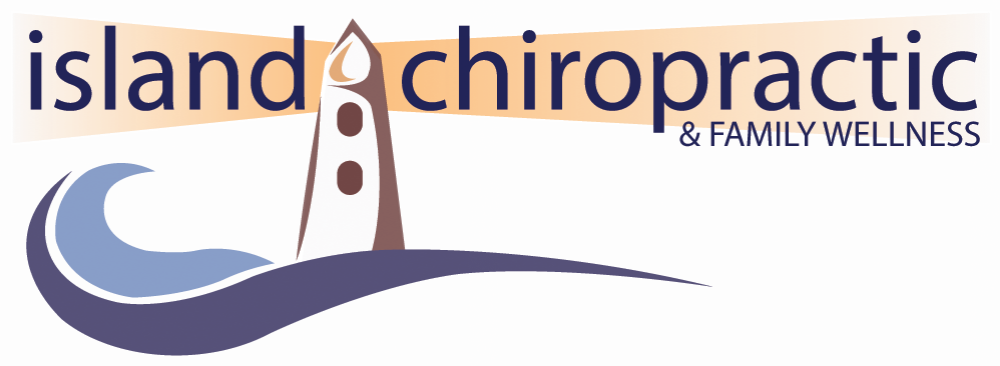Foam rolling is a myofascial release technique that can be performed on your own. It typically uses a large cylindrical tube (usually made of foam or plastic) and can help relieve muscle tightness, soreness, and improve joint range of motion. It can be an…
Do not apply that sunscreen until you read this!
How many of you got a sunburn over mother’s say weekend? We did. It was still chilly out, but that sun was bright and caught us off guard. If you know us, you’ll know how careful we are with sun exposure - yes sun exposure is important, but equally important is safe sun exposure. When it comes to sunscreen, what is better - spray or lotion? Let’s see what the EWG has to stay about it.
Rekindle A Healthy Relationship With The Sun
Lazy Cabbage Rolls
You had an MRI - now what
MRI findings of joint deterioration are often interpreted as causes of pain, which can trigger costly medical treatments and surgery. Many of the MRI changes may actually not be the source of the pain, and are associated with the aging process.
MRI findings are common in asymptomatic people
over the age of 40 years.
Asymptomatic findings:
Neck - 5-35% disc herniation or bulge
Low back - 68-96% disc degeneration and 50-84% disc buldge
Shoulder - 55-72% labral tear
Knee - 43% cartilage lesions, 19% meniscal tear, and 37% osteophytes
What should you do?
Consult a care provider that treats your symptoms and not your imaging (treat the patient, not the scan!). Treatment should include exercises, manual therapy and education.
Recognize that these “abnormal findings” can be part of aging and don’t always require “fixing”
Understand, just because you have pain today, doesn’t mean you will always have pain! Look at the stats, there is a lot of the population with MRI findings that still live their lives pain free!
Don’t be afraid to live your life! Bring back movement to the area with the help of your chiropractor.
Don’t think of it as “degenerative changes” reframe the language into “normal age-related changes”
* Imaging is useful for the differential diagnosis of many conditions, including ruling out serious diseases that can present as musculoskeletal pain, and should be used with appropriate clinical reasoning*
References:
D'Antoni & Crott. J Whiplash Rel Dis 2006
Brinjikiji et al., AJNRR AM J Neuroradiology 2015
Schwartzberg et al., Orthopaedic J Sports Med 2016
Culvenor et al., Br J Spors Med 2019
Heerey et al., Br J Sports Med 2018
Disclaimer
None of the information provided on this website should be substituted for medical evaluation, diagnosis, or treatment from a licensed healthcare practitioner.
Breakfast Saver
More snow on the way
Winter Class schedule
Survive the holidays like a champ!
Surviving Pre-Holiday Stress
The holidays are typically a time where family and friends can get together and celebrate. For some, the weeks leading up to the holidays can cause headaches, havoc and unrest. Here are some tips to help you survive the weeks leading up to the holiday season.
Plan Ahead
Now is the time to look at the calendar and lay it all out. Identify which day will be a shopping day, which day is a baking day, which day will be occupied with get togethers. By labeling it ahead of time you will be able to avoid feeling like you are running out of time. Don't forget to schedule time for self-care, it’s easy to forget about the most important person during this time of year, you!
Just Say No
Don’t be afraid to say “No”. Recognize that you can’t do everything and be everything all the time. Saying yes all the time can leave you feeling overwhelmed and exhausted.
Be realistic
Does it have to be perfect? Is good enough? Thanks to social media, now more than ever we have these imaginary standards of how something is supposed to look. Trying to keep up with pinterest can be exhausting and impossible.
Stick to a budget
Get an idea of how much you can realistically spend over the holidays without going into too much debt. Spending too much over the holidays leads to stress, anxiety and depression in the New Year when the credit card bills start to roll in. Strategies to avoid spending too much over the holidays include:
Donate to a charity in somebody' else’s name
Give homemade gifts
Start a family gift exchange
Avoid eating out, have pot luck get togethers instead
Don’t abandon healthy habits
Even though you may be busy, still make time for exercise, stick to a healthy diet and sleep routine.
Feel It
Recognize how your are feeling and talk about it. It’s not always possible to be with your loved ones and that can be difficult. Whether it is due to distance or the passing of a loved one, sometimes it is difficult to process these feelings during this time of year. It’s okay to cry and express yourself, just because it’s the holidays doesn’t mean you have to be happy. Take some time to look at old pictures, tell stories about them, sing their favourite song, cook their favourite meal to feel close to them.
Remembering a feeling is much easier than what gift was given in any particular year. Take the time to reflect and recharge with your loved ones over the holiday season!
Happy Holidays!
Holiday Schedule
Exercise Class Schedule pre/post Holidays
Exercise classes will run as scheduled (exception - class cancelled on December 1st), up until the week of December 20th.
We will be taking a break from classes the week of December 20th, 27th and January 3rd.
All classes will resume the week of January 10, 2022.
Policy Update
Cancellation And Missed Appointment Policy
By booking an appointment, you are agreeing to providing the clinic with 24 hours’ notice for cancellations. Missed appointments result in other patients not getting in to see us at that time. Appointments cancelled under 24 hours or missed appointments will result in the full charge of the appointment.
Account Balances
Unpaid balances are the patients’ responsibility. We direct bill for your convenience. If your insurance provider does not cover the cost of treatment or your benefits are exhausted, you are responsible for the balance. Your credit card will be charged to cover unpaid balances.
Thank You.
Posters are a hit!
The reviews are in and the gigantic colouring posters are an absolute hit! This Christmas we are hoping to raise $1000 for the Breton Ability Center with the sale of our Holiday Colouring posters. Posters are $25 and are available at the clinic or at the Best of Cape Breton Gift Shop while supplies last.
Kids Giant Holiday Colouring Poster
Appointment reminder
A friendly reminder that your appointment time is reserved just for you. We don’t treat a bunch of people at the same time because we want to be able to solely focus on you and your complaints.
A late cancellation or missed visit leaves a hole in the therapists’ day that could have been filled by another patient. Please remember we require 24 hours notice for any appointment cancellations or changes.
Patients who provide less than 24 hours notice, or miss their appointment will be charged a cancellation fee.
Thank you for your understanding and cooperation.
Cheating on your sweet tooth
According to the stats can website, in 2004 it was estimated that on average Canadians consumed 110 grams of sugar daily - that's a whopping 26 teaspoons of sugar! While fat has typically been blamed for poor dietary choices, sugars are much more problematic than "healthy fats". What does too much sugar in the diet actually do to the body?
Reduce the risk of developing Metabolic Syndrome
Metabolic syndrome, is the development of at least three of the five following medical conditions:
central obesity / high waist circumference (over 35 inches for women and 40 inches for men)
high blood pressure
high blood sugar
high serum triglycerides
low serum HDL
In combination, these conditions contribute to the development of cardiovascular disease and type 2 diabetes. A recent study published by the Journal of the American Medical Association found that using vacation time could lessen the chances of developing metabolic syndrome. Interesting findings include:
Each additional vacation reduced the risk of metabolic syndrome by 24%
Those who took no yearly vacations had a 47% higher chance of developing one or more of the conditions of metabolic syndrome
Those who took 5 vacations a year had a 16% chance of developing one or more of the conditions of metabolic syndrome
Those who took 15 vacations a year had a 1% chance of developing one or more of the conditions of metabolic syndrome
The number of vacations days doesn’t matter, it was the number of vacations that reduces the metabolic syndrome symptoms.
Other interesting findings include
“Staycations” are just as good as going somewhere
The number of vacation days taken isn’t as important as the number of vacations
On average, participants used 14 paid vacation days a year
Alcohol consumption was low
Participants slept well during their vacations
So the next time you get the urge to book that flight or do an overnight trip to Chéticamp, do it! Where is your favourite play to escape to?
Citation

















